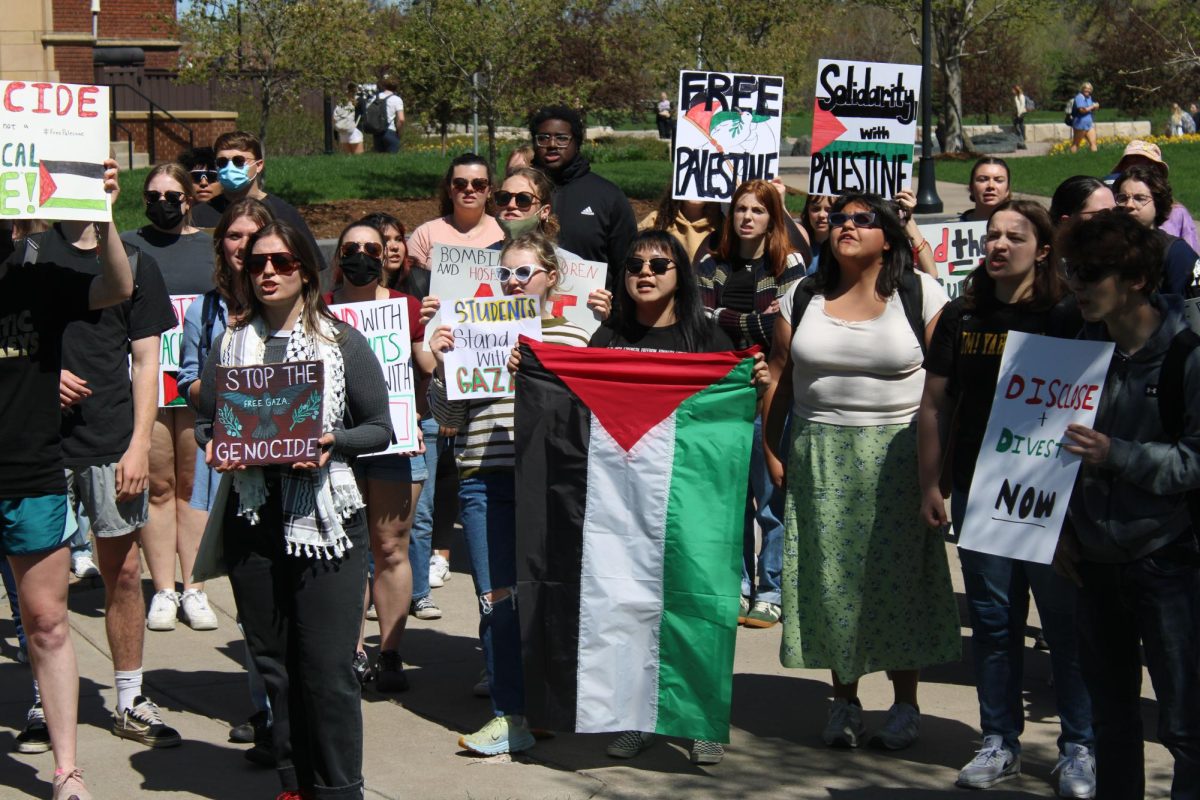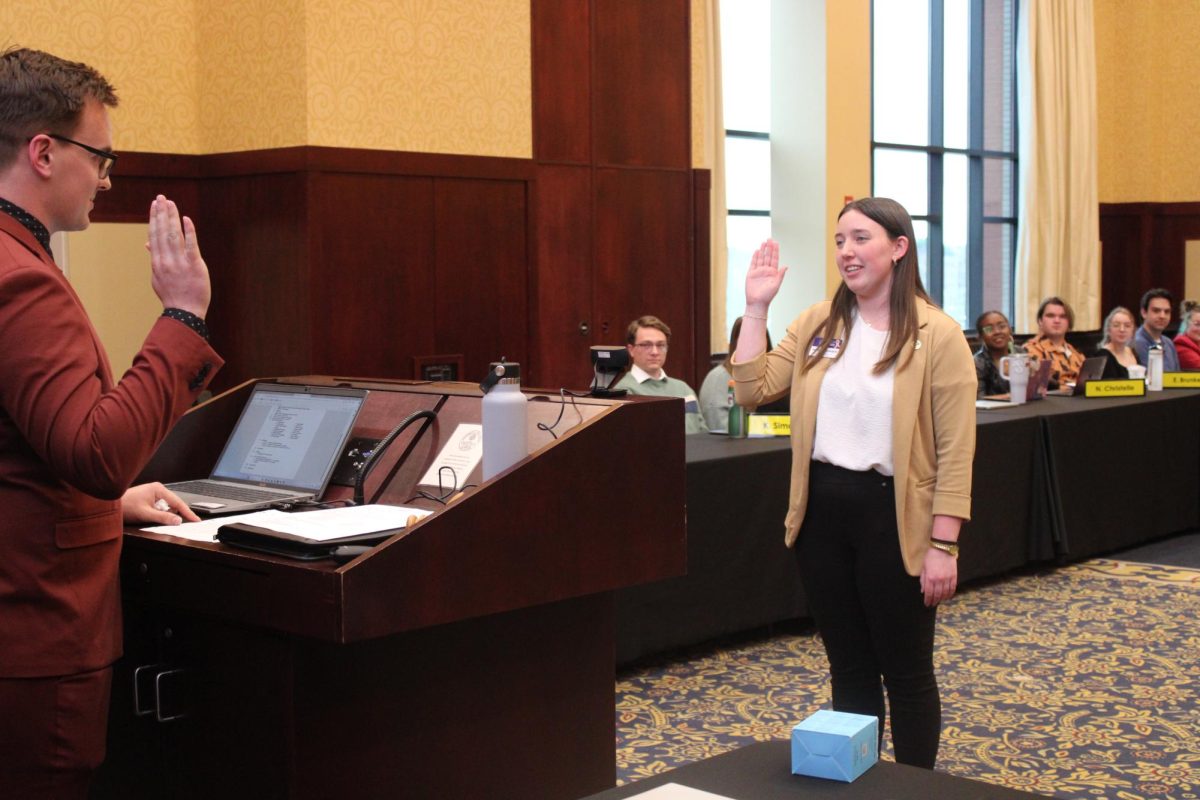 submitted photo
submitted photoInstead of attending classes on Sept. 23, eight geography majors, two biology majors and one geography professor were flying across the continent on their way to Seattle to conduct their class on the Pacific Coast.
After arriving in Seattle, the group spent six days traveling down the coastline, studying the shape of the coast and how it was formed, for their geography capstone class.
The group ended up in Warrenton, Ore., where it spent two days searching for a lost Clatsop Native American village that Meriwether Lewis and William Clark visited 200 years ago at the end of their expedition, said senior Ryan Zahler, a geography student in the group.
“Nobody’s ever found it,” he said. “I thought it was really interesting because they had professional archaeologists out there looking for (the village) and they haven’t found it.”
To search for the village, the students and associate professor of geography and anthropology Harry Jol teamed with Curt Peterson, a professor at Portland State University, and other community members to research journals and maps written by Lewis and Clark.
They compared the journals and maps of the village to satellite imagery of the base, Zahler said.
The site is located within Camp Rilea Armed Forces Training Facility for the Oregon National Guard.
“It was just kind of hard to believe people used to live there because there’s nothing there now,” he said.
“It used to be right on the coast … you can’t even see the ocean from that area now.”
The group did not find the village on its trip, Zahler said. It did find the mouth of a river that had disappeared where the village was once located.
Using several techniques, like ground penetrating radar and global positioning system mapping, the group found the river.
This discovery is the closest anyone has ever gotten to finding the village because the entire area has been covered by dunes made from sand coming up out of the ocean during the past 200 years, he said.
“I felt like I was doing something really important,” Zahler said. “It was really exciting. I didn’t want to leave. I just wanted to keep looking for it.”
Senior Rebecca Thorn, another geography student on the trip, also said she did not relish returning to Eau Claire and catching up with the work she missed in other classes.
“Catching up was a hard thing,” she said.
“We had eight days on the beautiful coastline with no homework, and it was really, really hard coming back and having to go to class.”
Not only did the students have to work hard to catch up, but according to associate professor of geography and anthropology Garry Running, the work for the students’ capstone class had only just begun when they returned on Sept. 30.
Every student who does a research trip for his or her capstone class also has to compile his or her data and make a presentation on it, he said.
“They always present at student research day,” he said, “and usually at some national conference as well.”
All of the students from the West Coast trip will be presenting their research at the Association of American Geographers conference in Philadelphia in March, Zahler said.
Even with missing classes, Running said the field trip is one of the most popular ways geography students fulfill their capstone experience.
“We never have a problem filling (field trips),” he said. “In fact, if there were more of us we could do more of those trips.”






